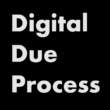The annual clinic project is run by Cornell undergraduate students under the direction of Professor Malte Ziewitz. It is organized as a 3-credit project seminar with the course code STS 4040, and enrollment is by application only.
Applications will be considered on a rolling basis starting in November before the spring semester. The next cohort will go to work in Spring 2026.
Course format
This course is project-based and very different from conventional classes. Think of this as a studio project or an independent study in a group. As a team, we will be spending the semester working on a specific project. The weekly work schedule will be organized around the needs of the project rather than a pre-set class schedule.
The 2026 Project
In the 2026 spring semester, our goal is to bring to life the Humans of AI project. The idea of the project is to collect and curate stories from people who live and struggle with a range of automated scoring systems, such as credit scoring, predictive risk assessments, automated screening tools, and many more.
The project will require a range of skills:
- arranging, researching, and conducting audio interviews with people whose lives have been affected by an automated system;
- curating these materials into engaging audio essays and related formats;
- making the stories available to particular audiences on a project website;
- reviewing scholarly literature and media reporting about people’s lived experiences with automated systems.
This year, we are looking to add at least some people with audio editing, interviewing, storytelling, and public writing skills to our team.
As part of the project, you will undergo extensive training in human subjects research, interpetive research methods, media production, and the responsible presentation of data.
Time commitment
Expect a workload that is comparable to a three-credit research seminar or independent study. In addition to a weekly team meeting (Tuesday, 8:30–11:00am), you will be expected to do a significant amount of outside of class (5 hours/week). Please note that the clinic may require slightly more flexibility than other classes. For example, you might have to accommodate the schedule of an external interview partner and meet outside our scheduled time.
Eligibility
Preference is given to Cornell undergraduate students who are at least in their second year of study (i.e. sophomores, juniors, and seniors) can apply. Occasionally, we admit first-year, professional-degree, or graduate-level students. In terms of backgrounds, we are looking for a mix of (academic and non-academic) life experiences and skills. Engineering, history, computer science, STS, communication, ILR, or comparative literature – whatever your major, you will most likely have something to contribute.
Double check the year’s project focus and make clear in your application what specifically you can contribute. Applicants should be excited to work with people unlike themselves, be able to listen carefully, and to write collaboratively for a broader audience.
If you’re interested, submit an application through the form below. You will need a résumé, a short statement of intent, and an (informal) transcript. There may be a short interview. This year, we are planning to recruit a group of up to eight student researchers.
*requires Cornell account
